We are very excited about taking our financial scams research to the Glastonbury Festival, 2017. This offers an amazing opportunity to engage with a very different, and potentially huge, audience.
 But this offers a challenge – we are well practiced in presenting our research at conferences, public engagement events and more formally at policy forums – but how to do it in a tent, in a field, with a moving audience, at probably the best-known music festival in the country???
But this offers a challenge – we are well practiced in presenting our research at conferences, public engagement events and more formally at policy forums – but how to do it in a tent, in a field, with a moving audience, at probably the best-known music festival in the country???
The first response I get from people when I tell them about taking our scamming research to Glastonbury is: ‘are you going to scam people?’, and the answer is of course, yes (though we promise to return their personal information). Using an exercise that demonstrates how humans tend to want to please and are generally reciprocal by nature, we will demonstrate the characteristics scammers use to their advantage (Langenderfer, and Shimp, 2001).
To make our research attractive, and draw in an audience, we have turned to games which offer information in bite size chunks and reward players who use their scam ‘antennae’.
With such a diverse audience as Glastonbury we have a range of activities to appeal to children (and the sleep deprived) and older participants. So, we have designed a colourful ‘scams and ladders’ game where getting caught by scamming snakes means sliding down the board, while beating the scammers is rewarded by racing up the ladders.
Others may try a card sorting game where different scams are depicted with colourful illustrations. Players must sort into scam type and the correct sequence of events. For the detectives, we have hidden clues to be found within letters and emails (including clues only revealed with the use of a UV torch).
These will be fun activities, but our attendance at Glastonbury is also a serious research endeavour. Not only will we be collecting data about the general public’s awareness of scams, it is an opportunity for us to trial alternative ways of presenting research which break through the barriers between ‘research’ and ‘real life’. We will be evaluating our project and building on our findings to develop improved resources.
Scamming is an extremely serious issue affecting more that 3.25 million annually in the UK (Age UK, 2015), and can result in significant harm to victims’ health and well-being. This means finding diverse ways of communicating knowledge which empowers people and increases prevention through raising awareness is essential – including games.
Listen to Dr Sally Lee’s email to Mark Kermode and Simon Mayo being read on the BBC’s flagship film programme CLICK HERE. 1:55:20
References:
Age UK (2015) Only the Tip of the Iceberg: Fraud Against Older People, Age UK, London
Langenderfer, J. and Shimp, T. (2001) Consumer vulnerability to scams, swindles and fraud: A new theory of visceral influences on persuasion, Journal of Psychology and Marketing, 18:7, 763-783
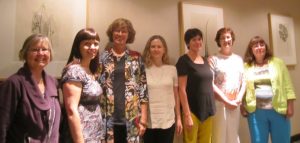
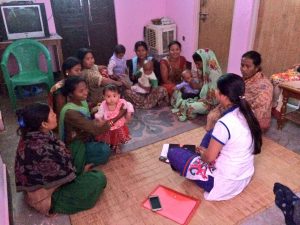
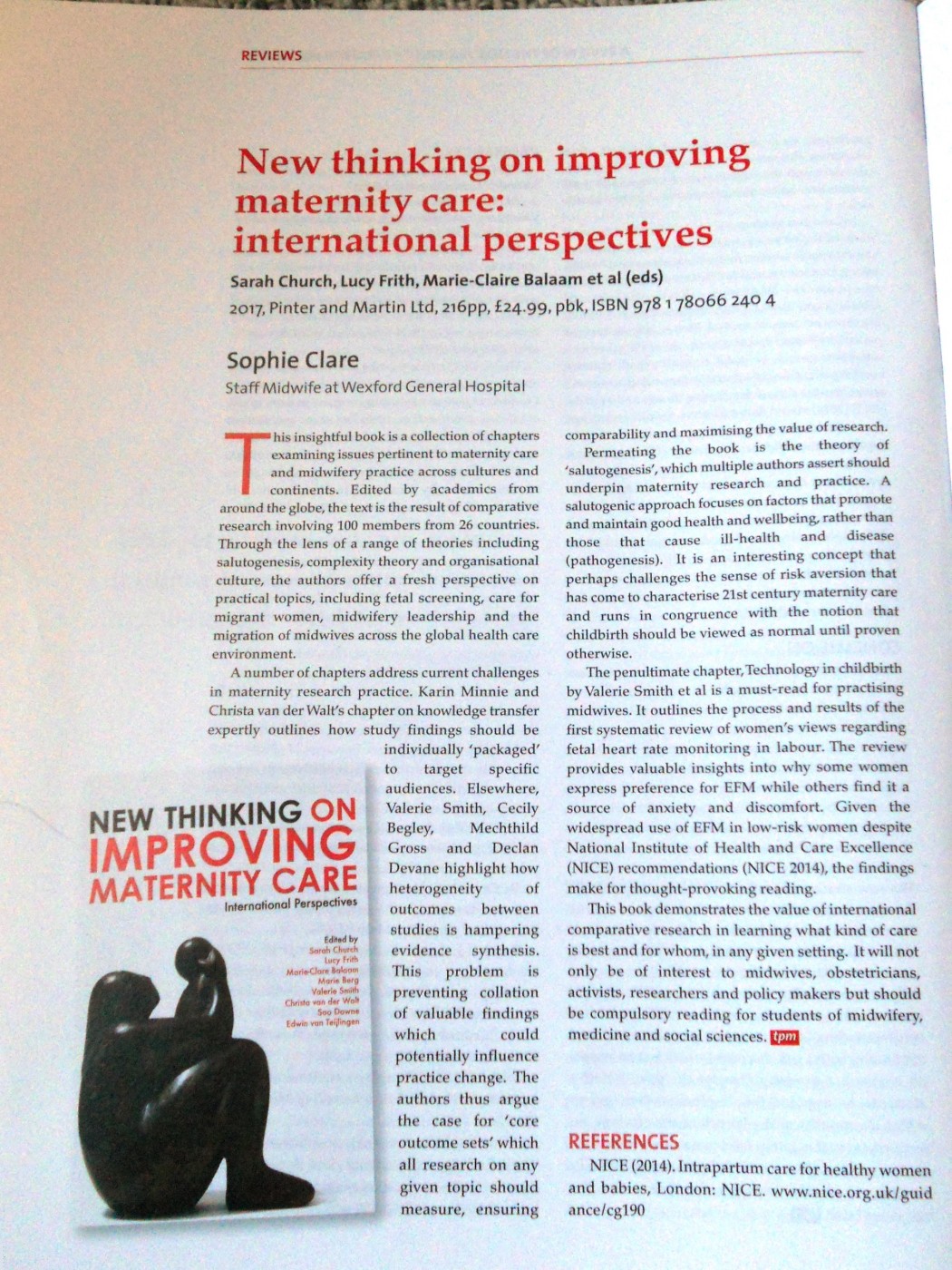

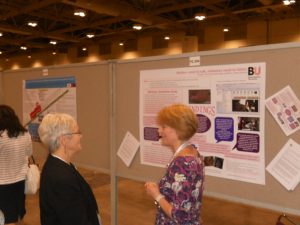
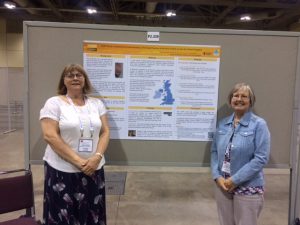
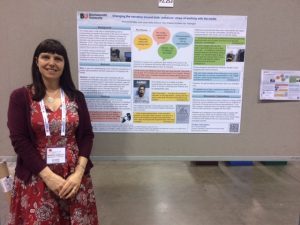
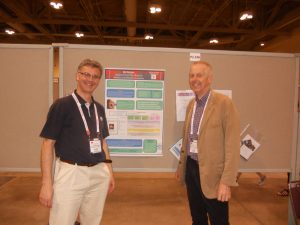

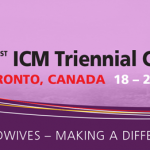

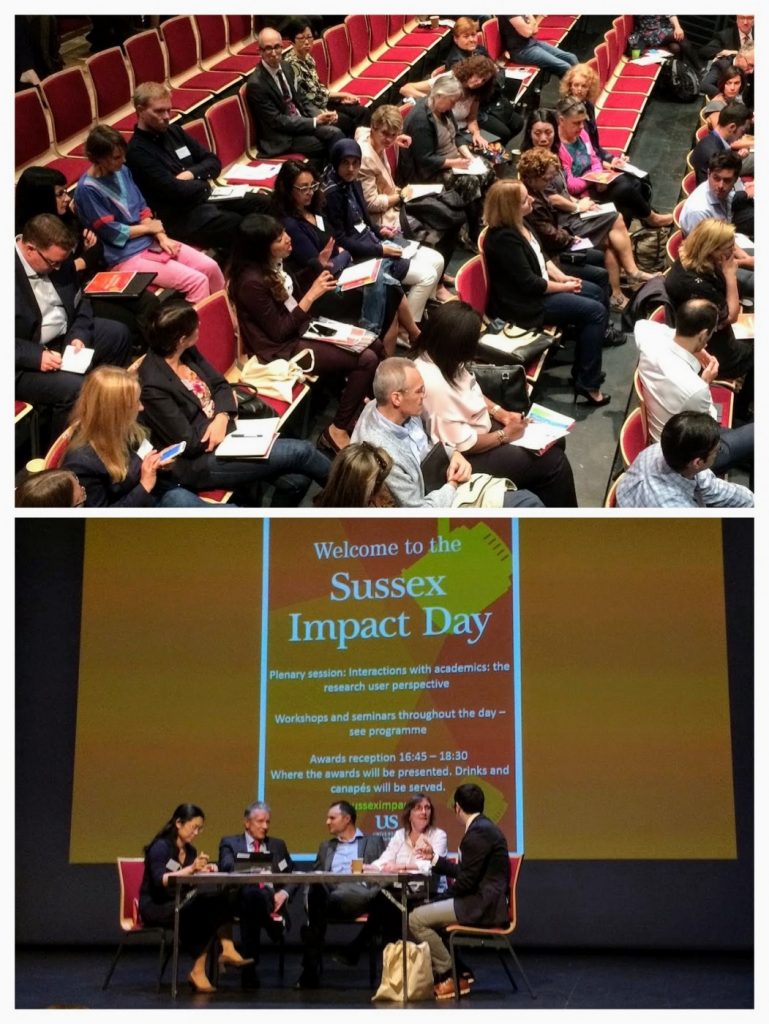

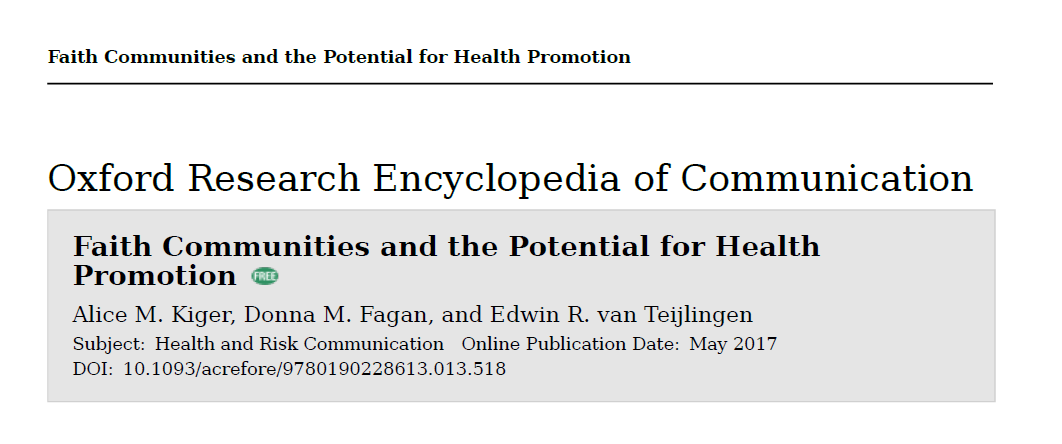

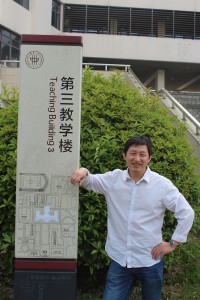
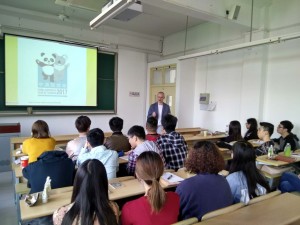
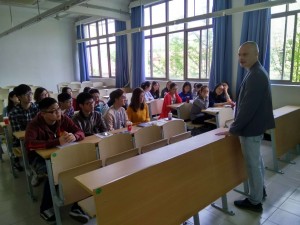
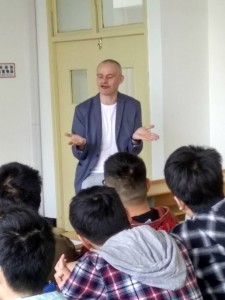
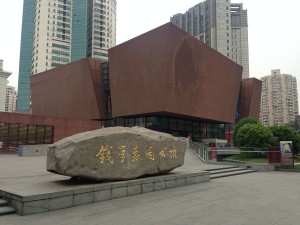
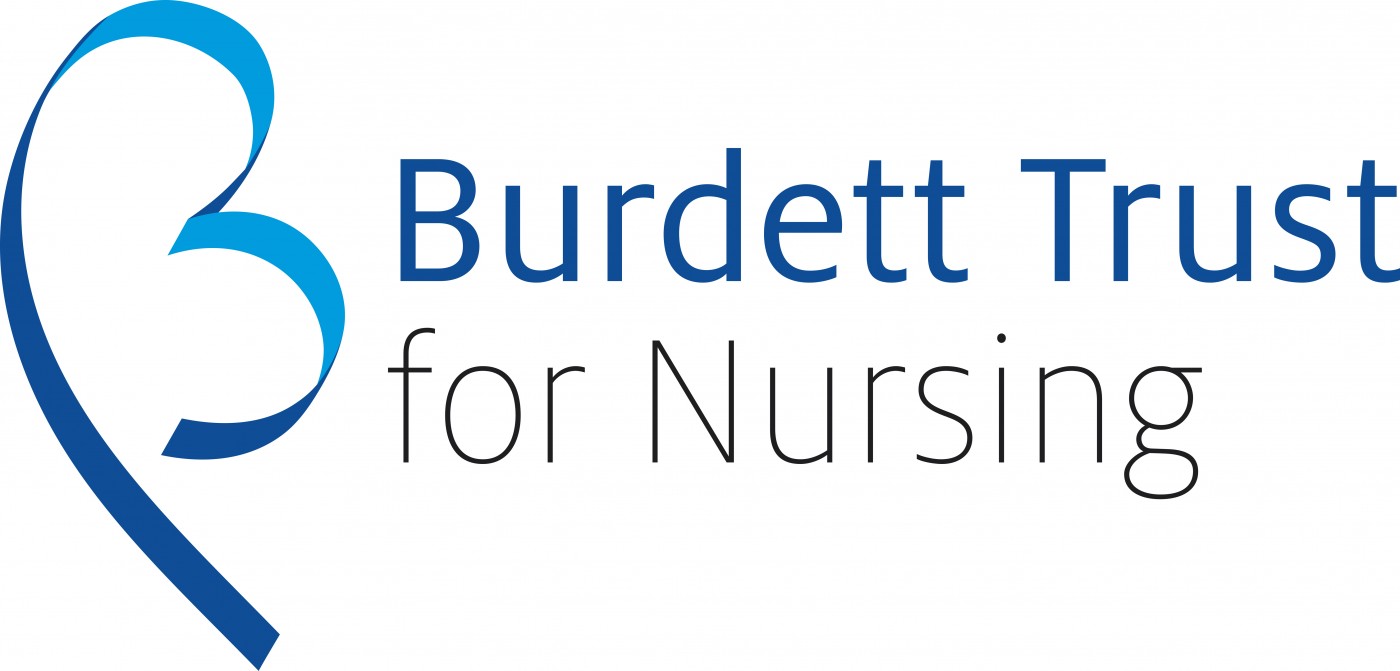


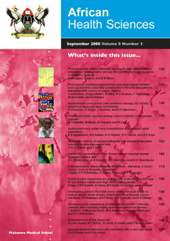


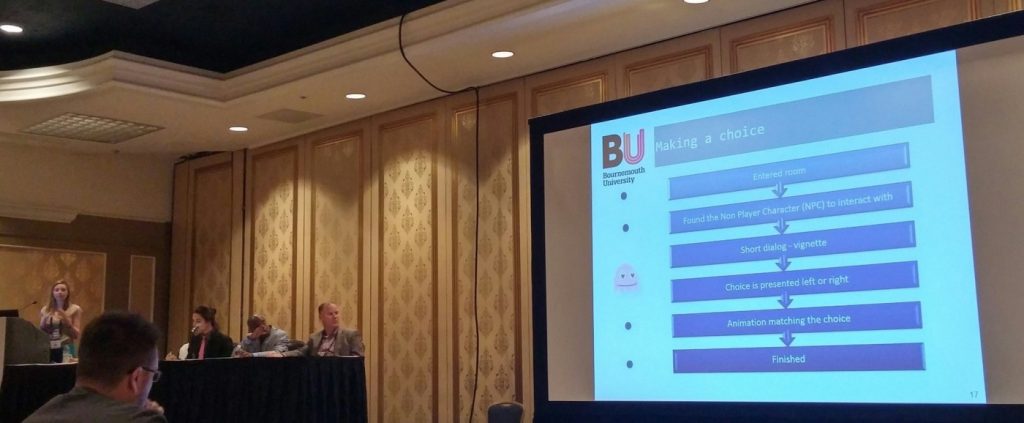 student paper. The research presented was funded by the University Student Research Assistant (SRA) scheme, which involved collaboration between departments and faculties. The research involved creating a game to measure in-game moral decisions. The research team included Jacqui Taylor and John McAlaney from the Department of Psychology, Davide Melacca and Christos Gatzidis from the Department of Creative Technology, and Eike Anderson from the National Centre for Computer Animation.
student paper. The research presented was funded by the University Student Research Assistant (SRA) scheme, which involved collaboration between departments and faculties. The research involved creating a game to measure in-game moral decisions. The research team included Jacqui Taylor and John McAlaney from the Department of Psychology, Davide Melacca and Christos Gatzidis from the Department of Creative Technology, and Eike Anderson from the National Centre for Computer Animation.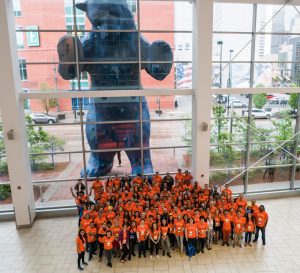
 volunteers with their duties. Sarah found it to be a great experience and highly recommends other students to consider being a student volunteer as a great chance to network and it also helps with funding conferences as the registration fee was waived.
volunteers with their duties. Sarah found it to be a great experience and highly recommends other students to consider being a student volunteer as a great chance to network and it also helps with funding conferences as the registration fee was waived. Who can apply
Who can apply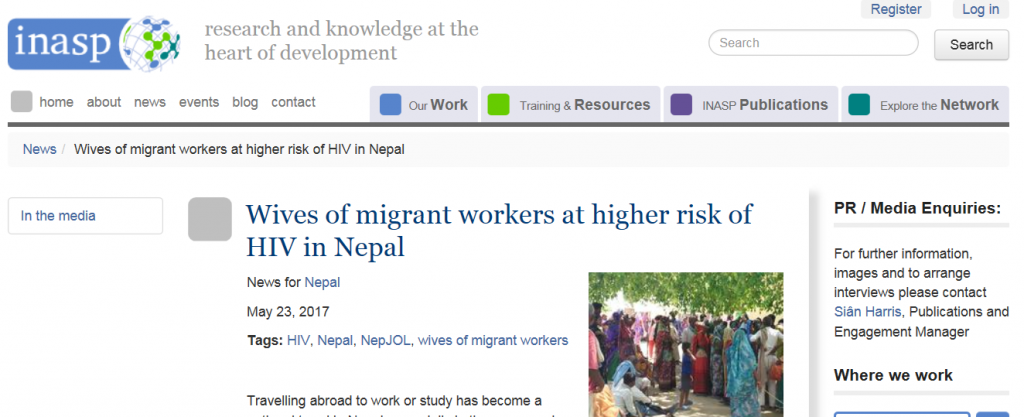
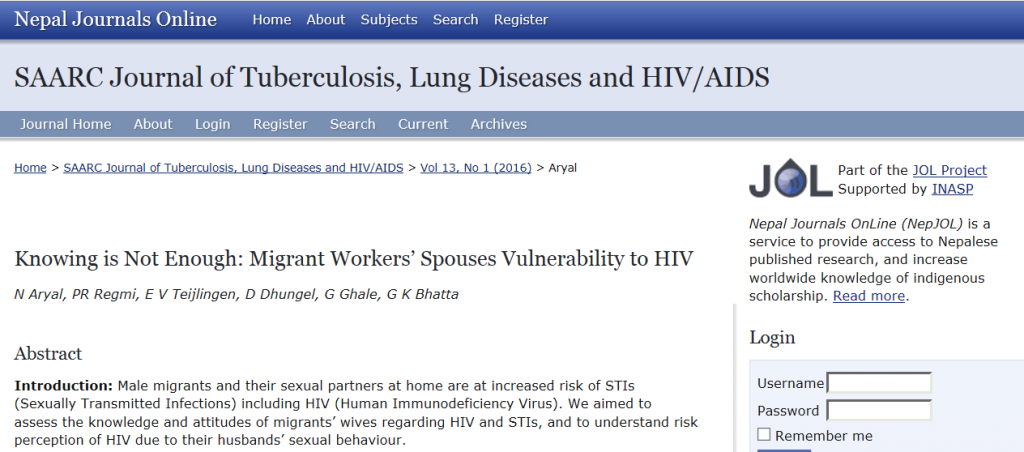
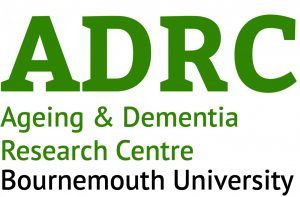















 Conversation article: London Marathon – how visually impaired people run
Conversation article: London Marathon – how visually impaired people run Horizon Europe News – December 2023
Horizon Europe News – December 2023